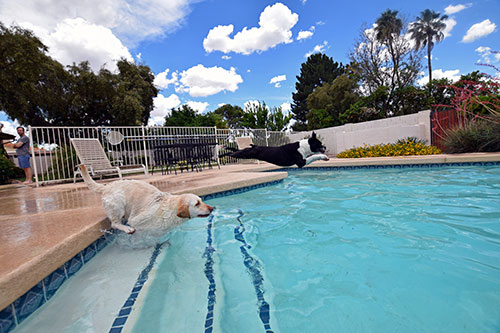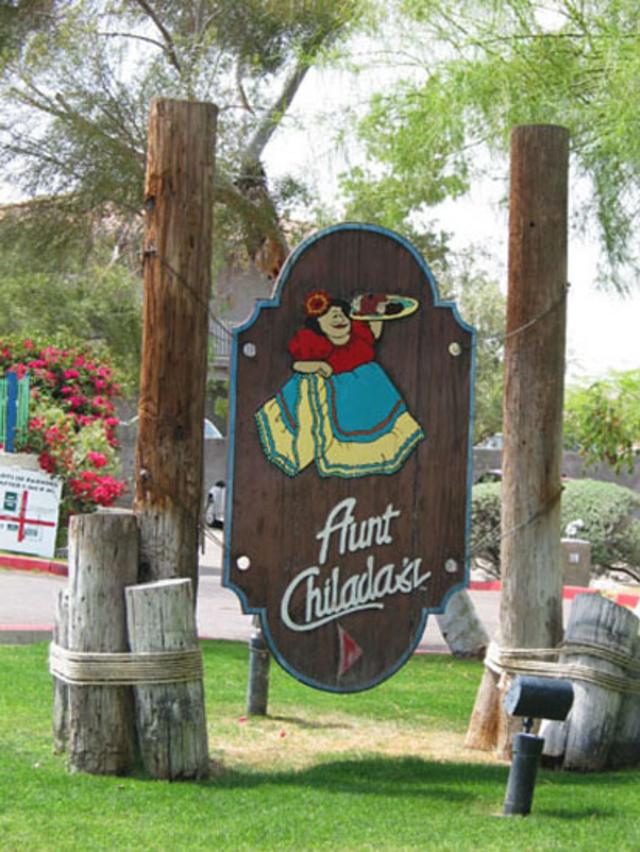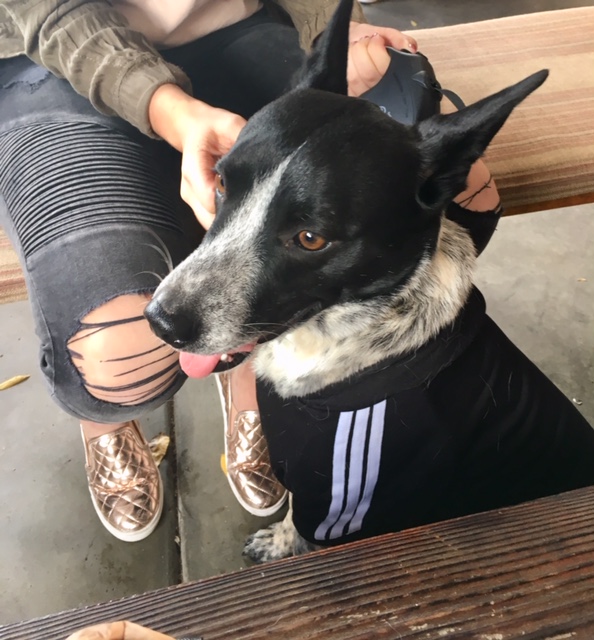Dogs and Swimming Pools

After an extraordinarily mild May in Phoenix, it’s getting to be that time of year when we all start enjoying the pool, dogs included!
It’s important to remember, however, that Fidos with their wonderful senses of smell can get into what we use to clean our pools, so keep those chemicals in a locked, safe place.
Pool chemicals, including chlorine tablets, muriatic acid and brominating tablets, are generally safe once they are diluted in the pool. But in their purer form, they are corrosive and if swallowed by your dog, can result in severe life-threatening ulcers in the digestive tract.
Also be careful if you are mixing chemicals in a small, confined space, that you don’t let the dog in the area; they could develop respiratory problems from inhaling the chemicals floating in the air. And wipe away any spills since some agents have a sweet odor to them and could attract your dog’s attention.
Once you are all ready for swimming, just know that dogs’ eyes, noses and ears are more sensitive than a humans’ and as such they may be more susceptible to chlorine’s effects. Rinse off and dry your dogs after they swim in the pool to reduce any risk of skin allergies caused by exposure to chlorine.
Many people believe that chlorine is the culprit behind dogs’ ear infections but actually it’s just moistness that can be harmful, according to the American Kennel Club. To prevent infections especially among floppy-eared dogs, give the ears a quick wipe down after pool time, they suggest.
Make sure your dog has plenty of drinking water so she is not tempted to keep drinking that chlorinated or salty pool water. Yes, we know, easier said than done when it comes to directing your dog to a proper water bowl. Exhibit A: The bathroom water bowl (aka toilet).
Overdoing it on the saltwater can cause your dog to have vomiting and diarrhea. The condition can become worse and cause seizures, depression, in-coordination and brain swelling.
As a precaution, check to make sure your dog is not experiencing red eyes, trouble breathing, and throat or stomach pain. It’s a good practice, in general, to have your vet’s number on speed dial. And another great resource to have just in case is the ASPCA Animal Poison Control Center. Available anytime, their number is (888) 426-4435.
With a swimming pool at hand, summer in Phoenix can be bearable and sometimes downright pleasant for you and your dog. Just take a couple precautions and enjoy your summer!






